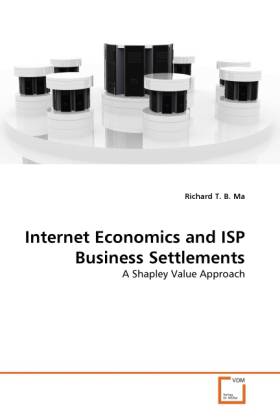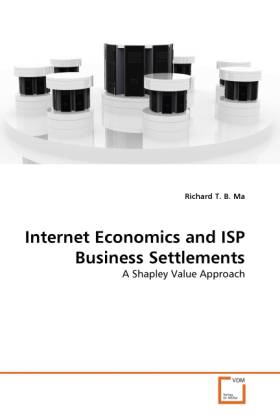
- Afhalen na 1 uur in een winkel met voorraad
- Gratis thuislevering in België vanaf € 30
- Ruim aanbod met 7 miljoen producten
- Afhalen na 1 uur in een winkel met voorraad
- Gratis thuislevering in België vanaf € 30
- Ruim aanbod met 7 miljoen producten
Zoeken
Internet Economics and ISP Business Settlements
A Shapley Value Approach
Richard T B Ma
Paperback | Engels
€ 48,45
+ 96 punten
Omschrijving
Internet service providers (ISPs) depend on one another to provide global network services. In the current Internet, autonomous ISPs implement bilateral settlements, with each ISP establishing contracts that suit its own local objective to maximize its profit. However, the profit-seeking nature of the ISPs leads to selfish behaviors that result in inefficiencies and disputes in the network. This book studies the use of the Shapley value as a profit mechanism for ISPs to reach settlements. Theoretically, we show that if the Shapley profit-distribution is enforced at a global level, then ISPs' selfish interconnecting and routing strategies will converge to a Nash equilibrium, at which these individual strategies maximize the aggregate network profit and encourage ISP connectivity so as to limit Internet balkanization. Practically, we derive the implications on the appropriate bilateral settlements between ISPs and the pricing structures for differentiated services. We conclude that the Shapley framework provides an ideal guideline and/or benchmark for solving disputes between ISPs and for building regulatory protocols for the Internet industry.
Specificaties
Betrokkenen
- Auteur(s):
- Uitgeverij:
Inhoud
- Aantal bladzijden:
- 112
- Taal:
- Engels
Eigenschappen
- Productcode (EAN):
- 9783639308174
- Verschijningsdatum:
- 24/11/2010
- Uitvoering:
- Paperback
- Formaat:
- Trade paperback (VS)
- Afmetingen:
- 152 mm x 229 mm
- Gewicht:
- 176 g

Alleen bij Standaard Boekhandel
+ 96 punten op je klantenkaart van Standaard Boekhandel
Beoordelingen
We publiceren alleen reviews die voldoen aan de voorwaarden voor reviews. Bekijk onze voorwaarden voor reviews.











